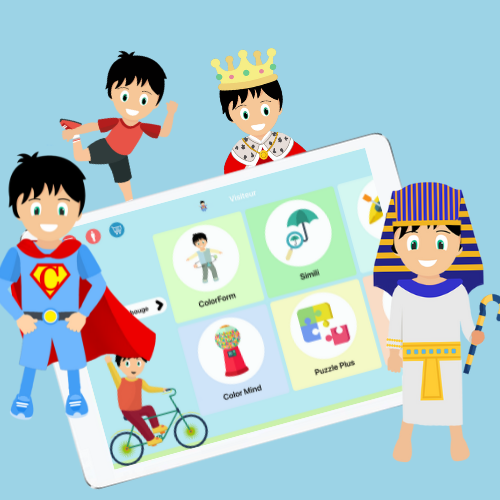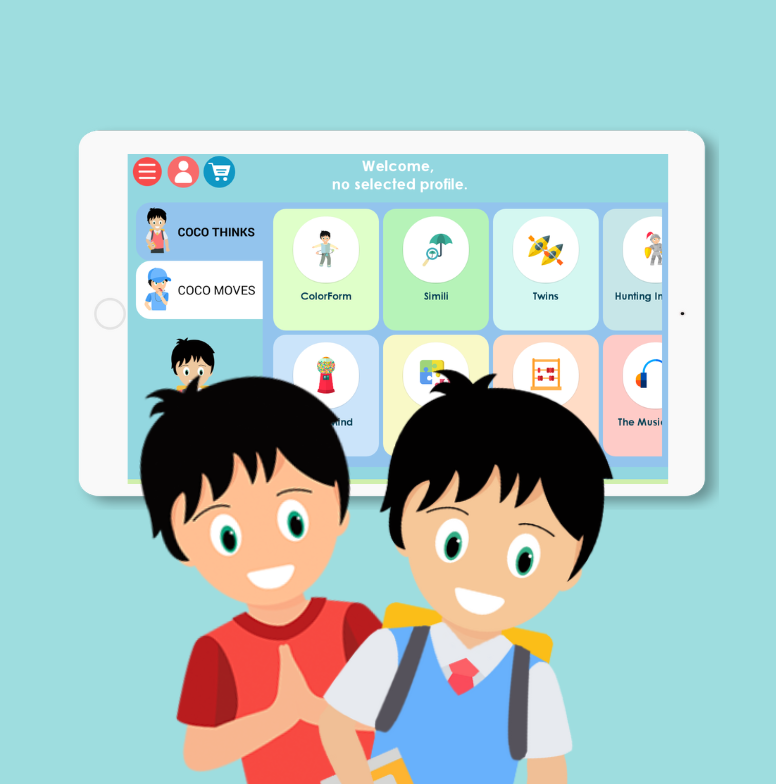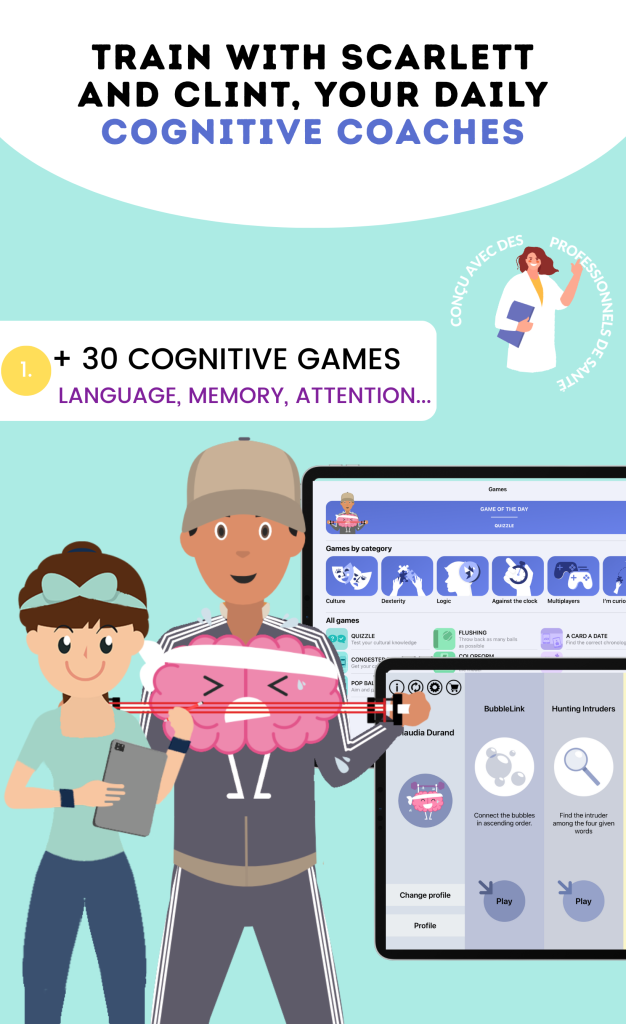The early learning of foreign languages is a topic that is gaining more and more attention, and many parents wonder what the best method is to teach English to their children from the age of 8. In this article, we will explore various pedagogical approaches to help parents make informed decisions about the best way to teach English to their children.
1. Language Immersion
The total immersion approach involves surrounding the child with a foreign language in their daily environment. Whether through games, books, or even television programs, immersion allows the child to naturally get used to the new language. We advise you to inquire with your CE, as some offer language travel opportunities. A perfect chance for your children to discover English!
As a parent, I have always been convinced of the importance of exposing my children to enriching educational experiences. Recently, our family decided to enroll our 9-year-old son in a language stay in England, and the results have been simply amazing.
Upon his return, we noticed a transformation in his attitude towards learning English. Before the stay, he was sometimes reluctant to practice the language, but after spending a few weeks immersed in an English-speaking environment, his confidence level reached new heights. He developed a natural ease in communicating in English, using expressions and phrases he would never have dared to use before.
What particularly impressed us was how the stay broadened his cultural horizons. Interactions with local children and organized activities allowed him to discover not only the language but also the richness of British culture. He returned with a renewed enthusiasm for cultural differences and an open-mindedness that we had not anticipated.
The language stay in England also had a positive impact on his academic performance. His improved language skills had repercussions in other subjects, boosting his overall confidence at school.
2. Structured Language Courses
Formal language courses can provide a structure and defined curriculum for learning English. Language schools, online courses, or private lessons are all possibilities. However, it is important to choose courses suitable for the child’s age, with fun and interactive teaching methods.
3. Educational Games and Apps
In the digital age, many apps and educational games are designed to teach English in a fun way. These interactive tools can captivate children’s attention and make learning more enjoyable. However, their use should be balanced to avoid excessive screen exposure. For this, the COCO THINKS and COCO MOVES educational app offers real added value: many games exist in both French and English, allowing the child to learn English gently through play. Moreover, the app requires a sports break every 15 minutes, which reassures families that they will not become addicted to screens; they are obliged to move! And they even do it with pleasure… For a complete immersion, you can download the app in English by changing the language of your phone or tablet, and you will have the COCO THINKS and COCO MOVES program entirely in English.


I have 2 eight-year-old twins, and I am always looking for stimulating and fun ways to introduce them to English. However, since we discovered the “Coco Thinks and Coco Moves” app, our daily life has taken an incredible turn.
From the start, the playful aspect of the app captivated my children’s attention. Coco’s interactive adventures, the main character, transformed learning English into an exciting experience. The stories, games, and activities are designed to be entertaining while being educational, which has significantly increased my children’s enthusiasm for learning the language.
What really sets “Coco Thinks and Coco Moves” apart is its immersive approach. All instructions, dialogues, and games are in English, creating an authentic learning environment for my children. I was amazed at how quickly they began to understand and use English expressions in their daily lives while having fun.
Another feature I particularly appreciate is the variety of activities offered. From solving puzzles to dancing and memory games, each session with the app provides a diversity that keeps my children’s interest while reinforcing their language skills.
As a parent, I am delighted to see how much “Coco Thinks and Coco Moves” has enriched my children’s vocabulary and boosted their confidence in expressing themselves in English. The fact that this immersion occurs in a playful manner is a real asset, making learning not only effective but also enjoyable.
4. Intercultural Communication
Encouraging exchanges with native English speakers can greatly benefit language learning. Cultural exchanges, pen pals with English-speaking children, or even trips to English-speaking countries can enrich the learning experience.
5. The Importance of Continuous Practice
Beyond specific methods, continuous practice is crucial for learning any language. Encouraging the child to use English in various contexts, whether at home, at school, or with friends, significantly strengthens their language skills.
There is no one-size-fits-all method for teaching English to an 8-year-old child. Each approach has its advantages and limitations, and it is often wise to combine different methods to create a holistic learning experience. The key is to maintain a balance between fun and structure while promoting a natural immersion in the English language. Ultimately, the key lies in patience, consistency, and adaptability to meet the specific needs of each child.
6. Online Resources for Learning English
With the advent of the Internet, many online resources are available to help children learn English. These tools can complement traditional teaching methods and offer learning flexibility. Here are some types of resources to consider:
- Educational websites: Platforms like BBC Learning English or Starfall offer free lessons and interactive games.
- YouTube channels: Channels like English Singsing provide fun and educational videos suitable for children.
- Podcasts: Listening to English podcasts for children, like TuneTank, can improve their listening comprehension while entertaining them.
- Forums and communities: Participating in forums or Facebook groups dedicated to language learning can provide valuable support and advice.
7. The Importance of Language Exchanges
Language exchanges are an excellent way to improve your child’s English skills while allowing them to make friends around the world. Here are some benefits of language exchanges:
- Language practice: Exchanges allow the child to speak English with native speakers, improving their pronunciation and fluency.
- Cultural understanding: Meeting children from other cultures helps develop open-mindedness and an understanding of cultural differences.
- Building connections: These exchanges can lead to lasting friendships, providing additional motivation to learn the language.
- Fun learning: Organized activities during exchanges, such as games or outings, make learning more enjoyable.
8. English Books and Media Suitable for Children
Encouraging reading in English from a young age is essential for developing language skills. Here are some suggestions for suitable books and media:
- Picture books: Books like Where the Wild Things Are by Maurice Sendak or The Very Hungry Caterpillar by Eric Carle are perfect for young readers.
- Book series: Series like Magic Tree House or Geronimo Stilton are captivating and age-appropriate for children.
- Movies and cartoons: Watching movies and series in original English, like Peppa Pig or Finding Nemo, can help improve listening comprehension.
- Comics: English comics, like Dog Man or Captain Underpants, can make reading more appealing.
9. The Impact of Extracurricular Activities on Learning English
Extracurricular activities can play a crucial role in learning English. Here are some options to consider:
- Language clubs: Joining a language club where children can practice English with their peers in a relaxed setting.
- Theater and performing arts: Participating in English plays can help improve self-confidence and language skills.
- Sports: Sports teams with English-speaking coaches can provide language immersion while having fun.
- Creative workshops: Art or music workshops in English can stimulate creativity while learning the language.





